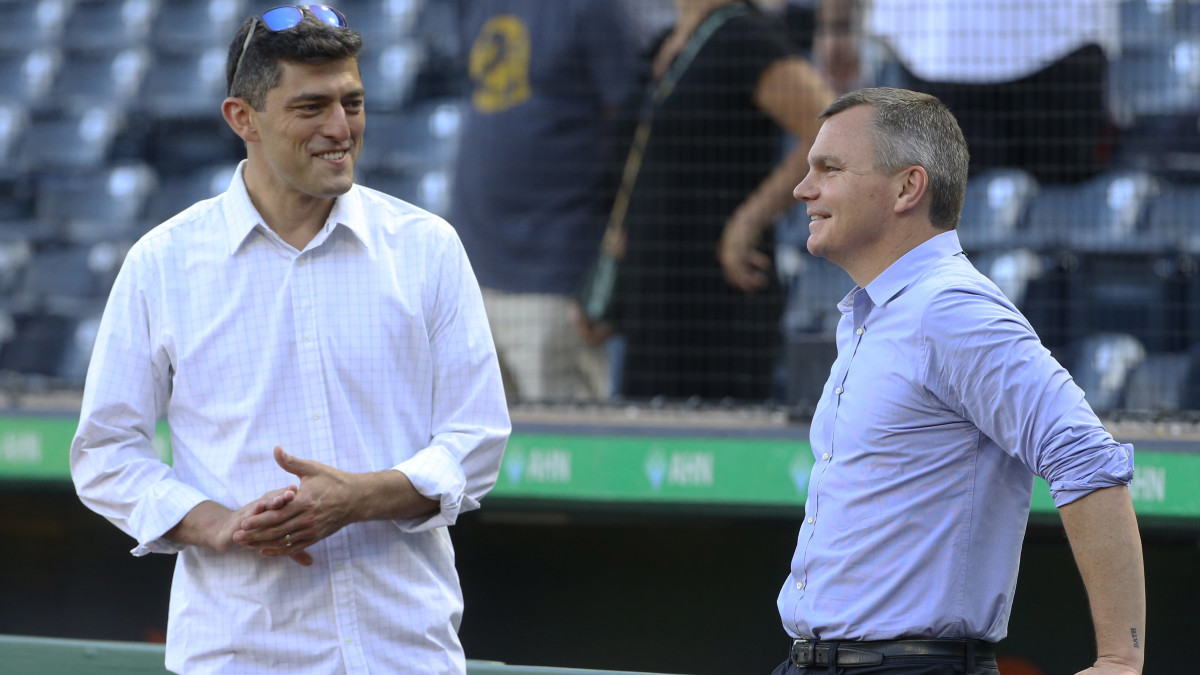Boston Fired Chaim Bloom, but Don’t Blame Him for All of the Red Sox’ Struggles

There is little practical difference between firing an executive with two weeks left in the regular season and firing him once the season is over. But there’s a big aesthetic difference. If an October firing can feel routine, customary, a matter of course, a September firing is always a statement. It’s a denunciation. And if every front-office shuffle necessarily comes with some shift in direction, it’s never so clear, so explicit, as when that shuffle begins in September.
So when the Red Sox fired chief baseball officer Chaim Bloom on Thursday, it was a declaration. But of what? It’s hard to say. Bloom was handed a difficult job in his four years in Boston: He came to town in the winter of 2019, the club just a year removed from a championship, yet he was immediately tasked with cutting payroll and rebuilding the farm system. It was not a particularly exciting time to take on what can be one of baseball’s most exciting gigs. Yet Bloom, by all accounts, did what was asked of him. And now he’s been axed.

“While parting ways is not taken lightly, today signals a new direction for our club,” Red Sox owner John Henry said in a statement. “Our organization has significant expectations on the field, and, while Chaim’s efforts in revitalizing our baseball infrastructure have helped set the stage for the future, we will today begin a search for new leadership.”
On paper, Bloom’s time in Boston was fairly bleak. The Red Sox finished in last place in two of three full seasons under him; they now have a chance to do so again, currently tied for fourth place with the Yankees, though they do sit just above .500. (Their last playoff appearance came in 2021—their only successful campaign with Bloom—when they made a run to the ALCS.) It’s been a rough few years. Yet under the constraints set by Henry & Co., it’s hard to see how any general manager could have made them feel too much better.
Bloom was brought aboard by Henry in large part to help the team cut costs. He’d previously spent a decade and a half with the Rays, where he worked his way up from intern to senior vice president of baseball operations, leading a club that was perennially successful despite its small budget. That was a far cry from the Red Sox, who carried the league’s biggest payroll when they won the World Series in 2018 and did so again in ’19, their last season before hiring Bloom. The logic here seemed obvious: The Red Sox wanted to retool, get under the luxury tax and ultimately rebuild. And they wanted Bloom’s track record of savvy operating to help them do it.
Yet that process requires time, and it’s not painless, either. Bloom was first tasked with an enormously unpopular move: In February 2020, to help cut payroll and initiate a turnaround, he dealt beloved homegrown star Mookie Betts to the Dodgers. Of course, Bloom still had agency here: There are certainly fair questions about whether he might have netted a better return, or if he could have fought harder to explore other options, or if there was any path to make the trade less brutal. But this is the kind of move that can take a franchise years to move on from, even in the best of circumstances.
And this season felt like a potential turning point. The Red Sox were better on the field this year than last year, and more important for the long-term outlook, the farm system was rejuvenated and seemed ready to bear fruit soon. They no longer rank in the top 10 for MLB payroll. Boston is under the luxury tax and theoretically should have had more flexibility to spend this winter and next. As Henry said in his statement, Bloom did help set the stage for what could easily be a successful future. But he won’t get to see it through.
Red Sox fans have plenty of reason to be disappointed with the past few years. But it’s not Bloom who should have to bear most of that disappointment.
